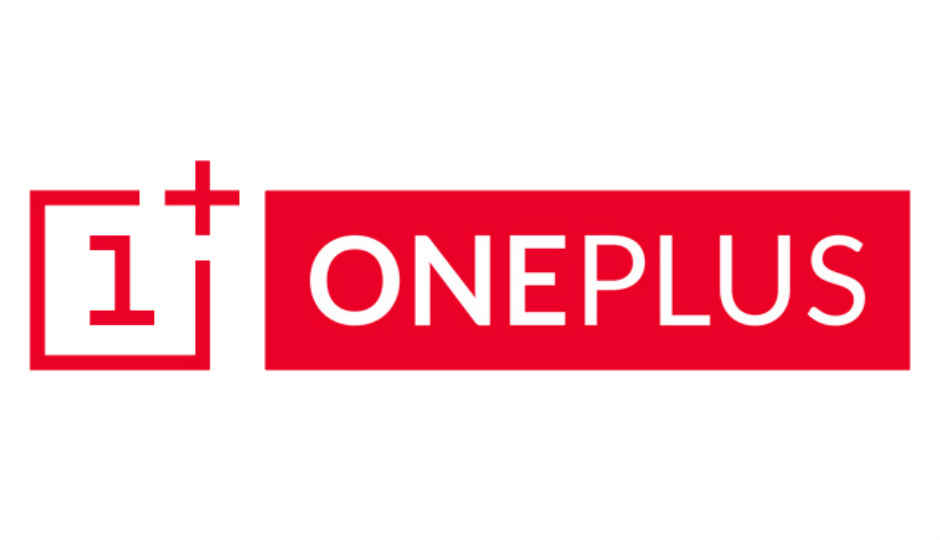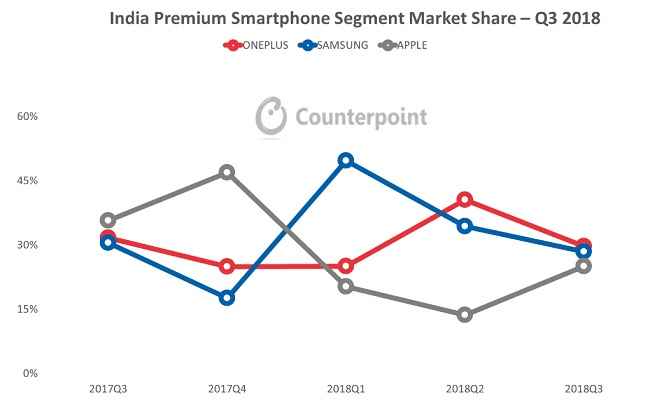OnePlus ahead of Apple and Samsung in Indian premium smartphone market: Research

OnePlus holds a 30-percent share of the Indian premium smartphone market while Apple and Samsung hold 25 percent and 28 percent respectively.
It seems OnePlus has hit the nail on the head by focussing all its efforts on the Indian smartphone market because a report by Counterpoint Research reveals that the Chinese smartphone maker is currently ahead of other long-time players like Apple and Samsung in India. According to the report, the OnePlus 6 is the best-selling model in the premium smartphone category (smartphones above Rs 30,000) during the third quarter of this year. It’s followed by the Samsung Galaxy Note 9 at 14 percent and the Samsung Galaxy A8 Star at 5 percent.
According to the same report, Apple’s share in the premium smartphone market has reached 25 percent in India, thanks to the recent launch of the iPhone XS and the iPhone XS Max. Samsung’s overall share stands at 28 percent, letting OnePlus grab a chunkier 30-percent share of the market. The OnePlus 6 has reportedly become the highest-selling flagship model for the company within five months of launch.
We can chalk OnePlus’ recent success in market dominance to the company’s strategic pricing and effective social media strategy. The OnePlus 6 saw a price cut of Rs 5,000 during the Amazon Great Indian Festival Sale in mid-October, just a couple of weeks before from the launch of its successor, the OnePlus 6T. OnePlus is also engaging with its customers and fans by regularly sharing photos shot by them on OnePlus devices on social media like Twitter and Instagram using the hashtag #ShotOnOnePlus to keep the hype alive.
Apart from opening several showrooms and service centres across India, OnePlus has also started small initiatives like the OnePlus Coffee Experience, where customers waiting at a OnePlus service centre are served freshly roasted and ground coffee. The launch and performance of the upcoming OnePlus 6T should tell us if the Chinese smartphone maker is able to maintain its streak.
Image courtesy: Counterpoint Research
Vignesh Giridharan
Progressively identifies more with the term ‘legacy device’ as time marches on. View Full Profile






